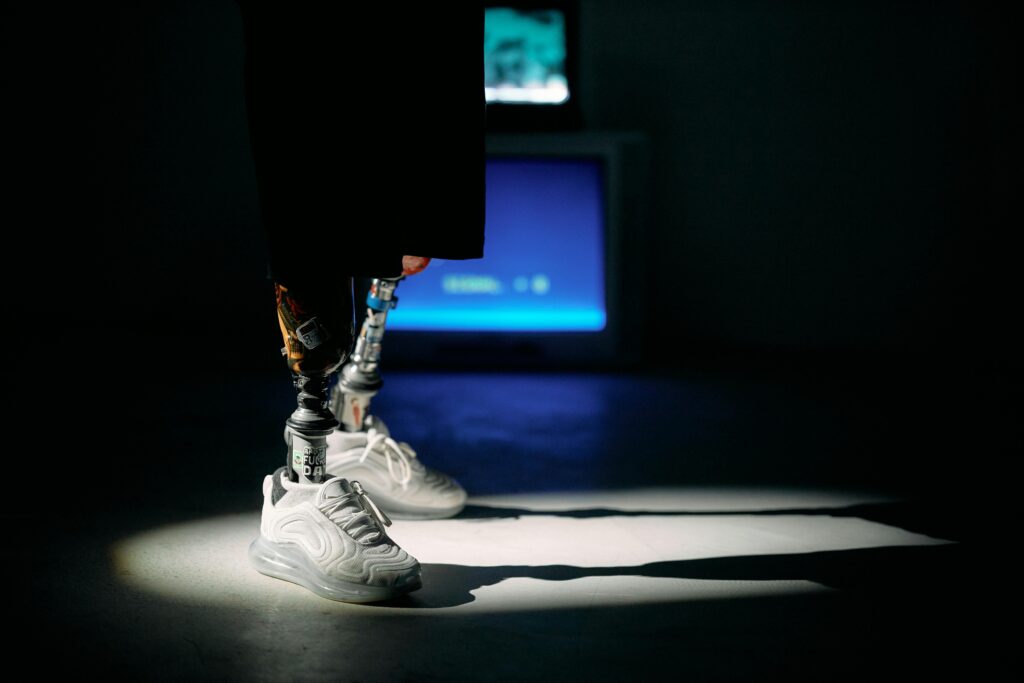By 2040, it is widely expected that artificial intelligence will profoundly transform many aspects of our society and daily lives, reshaping industries, society, and human experiences across the board. AI will become ubiquitous and this current generation will see as a natural part of their socio-economic landscape much like mobile phones have become. This technology will become seamlessly integrated into routines through advanced personal assistants, wearables, and potentially even brain-computer interfaces (see Neuralink). These technologies will offer tailored predictions and automations, fundamentally altering how we interact with information and our environment as well as changing the way we interface with each other as a society. In this article we look three areas of significant impact and consider what might be…
Let us start with healthcare. AI is positioned to drive (and has already driven) significant advancements in this field, from new drug design to ultra-early detection of cancers and indicators of health conditions. We can expect AI-driven virtual consultations, improved diagnostic tools, and personalised treatment plans that are intelligently modelled for multiple risks and analysed for performance over years, prior to being implemented. The technology will accelerate drug discovery, enhance patient monitoring both in a hospital setting and remotely through embedded body sensors, and of course, it will streamline administrative tasks in healthcare settings. 3D and 4D printing for prosthetics combined with AI, may even enable the manufacturing of medical body parts, revolutionising treatment options.

The economic landscape will undergo substantial changes due to AI. While increased industrial productivity, lower costs of business and economic growth are anticipated as AI automates many tasks, there are concerns about job displacement. The way that government, society and industry responds to this may see the emergence of some form of UBI funded in the most part by the tech companies and industry areas that benefit. Direct taxation of the benefits of AI may play a big part in reshaping the presence of certain industries in the UK and we anticipate that any government that looks towards the funding of a UBI in this manner will need to balance the desire for economic strength with the stagnation of the labour pool. However, this shift may also create new job roles and opportunities as well as adding more intrinsic value to the creative industries where non-AI product is considered to be of greater value – this may become a created market place of value going forward, particularly in creative and strategic fields. The concept of “work” itself will evolve (as we saw during the COVID 19 pandemic where the move to remote working has become embedded in the psyche and culture of “Generation Z”), with AI ultimately potentially eliminating most traditional jobs and allowing humans to focus on activities they find fulfilling.

One of the most anticipated and impacted areas will be education. We will see a greater move to personalisation of education pathways and more specifically trained models and developed architectures towards nurturing and exploring creativity whilst ensuring individualised strategies for core subjects such as Maths and English. Early indicators of talent and potential will be leveraged to design strategic educational landscapes by child. Teachers roles will become more specialised and much more about nurturing rather than delivering the same lesson to 30 students. The technology will allow teachers to room to focus in on children throughout the class and give quality time equally. A caution in this, particularly in the UK with the continued shift academy landscape will be the push to reduce costs and administrations will need to be mindful of this desire and ensure that, in order to fully reap the rewards that AI will bring to the classroom, the team must be allowed to add value rather than reduce cost. and entertainment sectors will see significant transformations. AI will enable highly personalised learning experiences, potentially rendering traditional educational models obsolete. In entertainment, we can expect new immersive experiences, including AI-generated content and advanced virtual reality environments. These developments may blur the lines between physical and digital realities, offering novel ways for people to relax, socialise, and engage with media.

However, the widespread adoption of AI also raises important societal and ethical considerations. Concerns about privacy, data security, and the potential for AI to be used in spreading disinformation across the board will likely become more pronounced. There may be shifts in how we perceive truth and knowledge, with AI potentially becoming a mediator of information. Addressing these challenges will require careful regulation, ethical frameworks, and a focus on developing AI systems that augment human capabilities rather than replace them entirely.
Political challenges will be more and more met with AI and technology-centric solutions, specifically CBDCs, Social Credit Scores, Local Movement Management, Climate Responsibility Scores and Consumption Control Mechanisms.
Yes, it’s going to be a challenging few years but you are not alone. And at McKinney Haarcourt we are ready to help your organisation lean into this exciting future so, for a free, no-obligation discussion about tomorrow take the first step and get in touch today.

